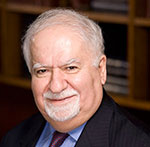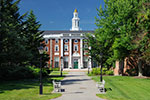
By Robert A. Scott, President, Adelphi University
What is the purpose of college? I believe undergraduate education is and must be as much about character and citizenship as about careers and commerce.

What is the purpose of college? I believe undergraduate education is and must be as much about character and citizenship as about careers and commerce.

Is higher education meant to help develop an inquiring mind and a deep appreciation for the value of how knowledge enriches one’s lifelong personal and professional achievements—or, should it be simply focused on gaining the skills to pursue a well paying career?

The market has made higher education in the United States what it is, complete with features that many wish to complain about, including certain kinds of facilities and staff that contribute to rising costs.

In the years ahead, consumers and stakeholders will demand that all higher education institutions be updated to meet contemporary needs. This can occur either by repairing the existing institutions or by creating new institutions to replace them.

If you use a GPS device, a mouse, or a microwave oven, take antibiotics, have an eye implant, or are reading this on a tablet, you can thank America’s research universities.

What should an educated person of the 21st century know and what does that means for the ways in which U.S. research universities ought to strengthen their teaching effectiveness?

How will it feel to become a second class nation? Inferior in technological innovation, second class in artistic creativity, a follower rather than a leader? This is possible—not certain—but a very real danger if the United States continues on its present course.

Liberal arts (and sciences) are the best possible preparation for success in the learned professions—law, medicine, teaching—as well as in the less traditionally learned but increasingly arcane professions of business, finance, and high-tech innovation.

While students worry that they cannot afford a college education, U.S. colleges and universities know they cannot really afford to educate them either. At technology-intensive research universities, it costs three times as much to educate an undergraduate as they receive in net tuition.

There have been dramatic changes and declines in the levels and sources of financial support for higher education in the past few decades. Why is this happening?

American research and teaching universities have been the envy of the world for six decades. Unfortunately, their record of excellence and achievement may not continue to hold up—and if it does not, we may find ourselves losing our position as worldwide leaders.

Domestically, American higher education is the subject of almost unprecedented criticism. “Too expensive and inefficient and not a good investment” is a common conclusion. But in international discussions and evaluations of higher education, American universities are frequently called “the envy of the world.” What explains this paradox?

The relationship between government and the university in the United States is, in the minds of many commentators, fraught.

Finding a more efficient way to deliver a truly high-quality college education is extremely difficult, but is the only way to solve the cost crisis in higher education.

For many people who have spent their lives working in higher education, mass higher education and research universities make for a perfect fit: together they express both the public service and the intellectual ambitions of educators. But they aren’t the same idea.